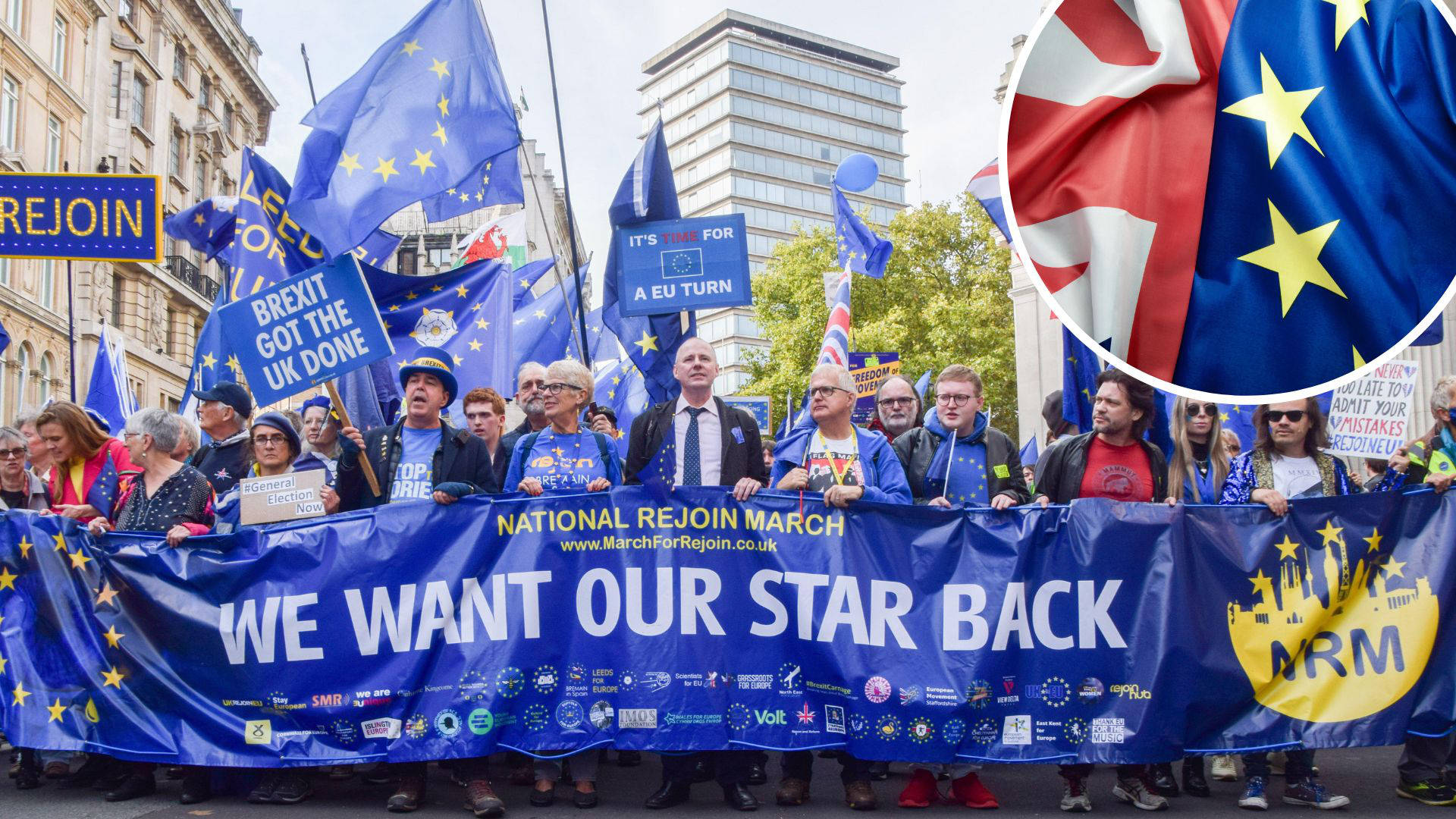
This article is more than 5 years old
Thanks, Brits – Brexit has vaccinated Europe against populism

Watching Brexit unfold is such a pleasure. One year on from the referendum of 23 June 2016, it is now clear that what we predicted is coming true: leaving the European Union is exceptionally difficult (assuming it is even possible), carries an undeniable cost, and plays havoc with the politics of the country attempting it – as the fiasco of Britain’s snap election, on 8 June, amply demonstrates.
That’s why I was in favour of a victory for leave: it would mean all the Europhobes and Eurosceptics of the union would see their dreams shatter on the brick wall of reality. So I would like to express my profound gratitude to the British people, who have once more demonstrated a spirit of sacrifice that is greatly to their credit. Thanks to them, the people of Europe will be vaccinated against populist adventurism for some time to come.
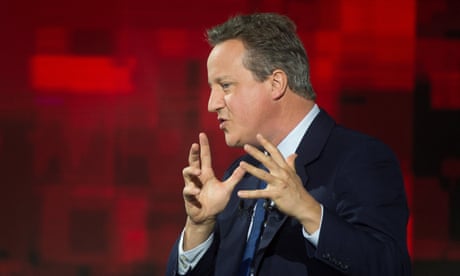
In fact, the victory for Brexit (and for its little brother, Donald Trump) has already had an extremely positive impact on the old continent, which is now finally insulated by a particularly thick fog from a UK high as a kite on nationalism: populist parties have been dealt heavy blows in Austria, the Netherlands, France and Italy, where the Five Star Movement has just been routed in municipal elections.
As for my own country, until recently the target of much mocking laughter across the Channel, it’s plain the presidential election of 7 May that sent Emmanuel Macron, the most pro-European of all the candidates, into the Elysée on 66% of the vote was a clear rejection of the “Frexit” proposed by the Front National (the victory of which, incidentally, the most ardent Brexiteers had called for).
The French may not fully support everything the EU does, and that’s perfectly normal, but they steered clear of what the Germans might call the Sonderweg – going it alone. And some FN officials have already got the message: since French voters do not want to abandon the euro or leave the EU, they now want to drop that part of the far-right party’s programme, at the risk of its possible disintegration.
Undeniably, Brexit has acted as a deterrent, accomplishing the not insignificant feat of uniting the Europeans as never before. Because for the past year, the British political class – both those who campaigned for leave and those, like Theresa May, who initially backed remain but then gave up the fight against a decision that plainly threatens British interests – have revealed their complete recklessness.
It is now obvious that there was not a plan A, or a plan B, or a plan C, as the government’s incapacity to begin negotiations with a clear strategy demonstrates. The 27 member states, in a hurry to get the whole thing over with, still have not the slightest clue what London wants or how exactly it intends to sever the UK’s extremely complex, 44 year-old legal ties with the EU.
After the rebuff of May’s government and of Ukip during in the election, some Conservatives are now even touting a “soft” Brexit as a way of respecting the wishes of voters who, by not giving their party a clear majority, seem to have rejected the “hard” Brexit that May was proposing – at a time when Britain’s American ally has become completely unpredictable and the world has not looked so unstable since the 1930s.
So what exactly is the difference between “hard” and “soft”? If I’ve got it right (and I speak carefully, given the intellectual morass Britain seems to have got itself into), it boils down to staying in the customs union or even the single market so as not to harm foreign trade and British business. At worst, that’s the Turkey option (the customs union), and at best the Norway (European Economic Area) or Switzerland (bilateral agreements) option.

But the Turkey option means allowing the EU to conclude free-trade agreements in Britain’s name, and the EEA option means accepting all the rules of the single market, including free movement of people, the jurisdiction of the European court of justice, and even a contribution to the EU budget equivalent to what the UK pays today. And all of that, of course, without having the least say in the texts negotiated and agreed in Brussels …
Here we near the sublime: Brexit could amount simply to Britain losing its influence in Brussels, giving up its voice – basically, surrendering its sovereignty without benefiting from any shared sovereignty to limit the coming economic disaster. That’s what’s called political and diplomatic suicide, especially when you remember the unique position the UK had managed to carve itself out in the EU and its influence in Brussels.
Now we can really see why the citizens of the old continent are not too keen on following Britain’s example. And we can understand, too, why all of Europe is quietly sniggering at the sorry spectacle of the worn-out old British lion: this week, Emmanuel Macron even allowed himself the luxury of reminding Theresa May, during her visit to Paris, that “the door will stay open, as long as the negotiations are not over”.
But if it does decide to stay, Britain will never recover the position it once had. Ridicule, after all, always has a price. Might it not be better to consider paying it, rather than commit such an extraordinary act of national self-harm?
Poor old Britain. It’s been a terrible few years. After a succession of crises – austerity, Brexit, partygate, cronyism and sleaze – the country is limping towards a general election, the government out of steam, the public poorer than at any point for perhaps 40 years.
It’s important that everyone, including those like you in the Netherlands, understand this story of sorry decline. The Guardian uncovers the truth about British life every day – its political scandal, royal rows and economic rout – and tells the world about it. That’s a valuable service. Will you invest in the Guardian this year?
Unlike many others, the Guardian has no shareholders and no billionaire owner. Just the determination and passion to deliver high-impact global reporting, always free from commercial or political influence. Reporting like this is vital for democracy, for fairness and to demand better from the powerful.
And we provide all this for free, for everyone to read. We do this because we believe in information equality. Greater numbers of people can keep track of the events shaping our world, understand their impact on people and communities, and become inspired to take meaningful action. Millions can benefit from open access to quality, truthful news, regardless of their ability to pay for it.
Whether you give a little or a lot, your funding will power our reporting for the years to come.Support the Guardian from as little as €1 – it only takes a minute. If you can, please consider giving a regular amount each month or year. Thank you.
Truss and Brexit have sunk Britain’s economy – and the right is in deep denial about both

The global economy is hardly booming, but the country is at the bottom of the pile of developed nations for two clear reasons
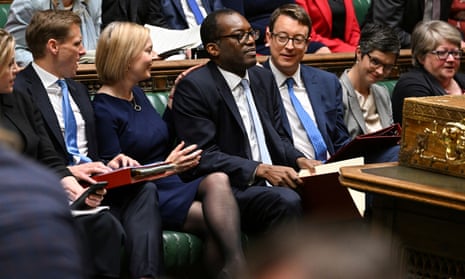
The International Monetary Fund could hardly have made it clearer this week. The chronic British disease, the underlying one that marks out the UK from the developed world crowd, is our low economic growth.
The IMF’s revised forecasts for 2023 certainly make stark reading for Rishi Sunak. Last week, at a cabinet awayday at Chequers, Sunak told colleagues they would be judged on five issues at the next election, of which one would be their success in expanding the economy. Yet just a few days later, the IMF revised its UK growth forecast down from the very modest 0.3% increase it posted three months ago to a 0.6% contraction.
With that new forecast, Sunak’s already steep route to electoral success got steeper and more slippery. But this isn’t Sunak’s problem alone. It’s a national challenge, affecting all of us. Strikingly, the UK was alone in suffering this humiliating revision. The IMF is forecasting growth for every other developed or large developing economy this year. That list includes not just all the countries some Conservative writers spend their careers disparaging, like France, Germany and Japan, but also even Russia, despite its wartime sanctions.
To be fair, none of this is to say that global economic growth is either booming or unproblematic. Neither is true. Global growth is slowing this year, and the deceleration is particularly marked across the advanced economies, the US included, not just in Britain. Growth, in developed and developing economies alike, is also a central cause of the global climate crisis and therefore cannot be ignored.
But it is to say that Britain is at the back of the field, and that the gap with the pack ahead just got bigger. There is a danger that Britain loses touch with its competitors. That will be an ineradicable inheritance for whatever government follows Sunak’s. True, not all the reasons lie at the government’s door. Yet many do – two of them in particular.
One is the short-term legacy of the Liz Truss/ Kwasi Kwarteng tax-cutting budget, which led to higher taxes, a spike in borrowing costs, increased interest rates, a contraction in the housing market and a lurch in market confidence. The other is Brexit, which continues to damage UK trade and create major shortfalls in the labour market, not least in the health service. The UK’s high relative dependency on imported gas at a time of sharply increased energy prices has not helped either.
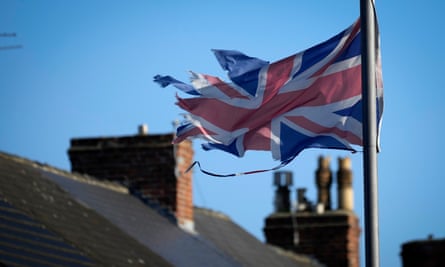
However, to read some of Britain’s rightwing newspapers this week, it is as if the events of last autumn never happened at all. Papers such as the Daily Telegraph and the Daily Mail are not merely in denial about the economic harm caused by Brexit, they also continued to claim this week that the answer to everything is tax cuts. If the economy is failing, there should be tax cuts. If it is booming, it’s time for tax cuts too. This is as daft and meaningless as Douglas Adams’s claim that the answer to everything is 42.
In this, though, these papers speak to and for a significant strand in the Conservative party that is extremely difficult for Sunak to manage, including at Westminster. It’s the strand that sees government as a problem and taxes as bad, that thinks both should be slashed to let growth loose, that backed Truss last summer and that would back Boris Johnson – and maybe even Suella Braverman – if either makes a bid to topple Sunak this year.
All of which leaves Sunak and the more cautious majority of the Conservative parliamentary party in a bind from which they cannot extricate either the government or, more importantly, the country. There is neither time nor resource for the Conservatives before the election. The tasks Sunak set them at Chequers look insurmountable at present.
Many will spare the Conservatives their pity. Yet this still leaves Britain in an economic policy bind, with less policy flexibility than other countries to generate the wealth in incomes and taxes that would enable households to cope, businesses to innovate, and trade and the state to begin the repair of the public services. It is a national crisis, not just a party political one. It would constrain Labour’s options, too.
There is plenty of growth strategy thinking out there for Labour to draw on that does not necessarily involve tax cuts or rises. Support for the new technological and green energy economies through public-private partnerships is many Labour strategists’ long-term favourite. Investment in education and childcare to get more people back into the labour market is another.
But there are more politically charged issues too, like increasing immigration or reforming (not just liberalising) planning laws, both of which would be unpopular with many. Britain must also grasp the Brexit nettle and improve access to and from European markets.
Few of these offer quick fixes, though, and if Britain has fallen further behind the pack in 2024, the gap will have widened and the inequities will have become harder still to overcome. A new government is certainly a necessary answer for Britain’s problems. But no one should pretend it is a sufficient one.
- Martin Kettle is a Guardian columnist
Poor old Britain. It’s been a terrible few years. After a succession of crises – austerity, Brexit, partygate, cronyism and sleaze – the country is limping towards a general election, the government out of steam, the public poorer than at any point for perhaps 40 years.
It’s important that everyone, including those like you in the Netherlands, understand this story of sorry decline. The Guardian uncovers the truth about British life every day – its political scandal, royal rows and economic rout – and tells the world about it. That’s a valuable service. Will you invest in the Guardian this year?
Unlike many others, the Guardian has no shareholders and no billionaire owner. Just the determination and passion to deliver high-impact global reporting, always free from commercial or political influence. Reporting like this is vital for democracy, for fairness and to demand better from the powerful.
And we provide all this for free, for everyone to read. We do this because we believe in information equality. Greater numbers of people can keep track of the events shaping our world, understand their impact on people and communities, and become inspired to take meaningful action. Millions can benefit from open access to quality, truthful news, regardless of their ability to pay for it.
Whether you give a little or a lot, your funding will power our reporting for the years to come.Support the Guardian from as little as €1 – it only takes a minute. If you can, please consider giving a regular amount each month or year. Thank you.
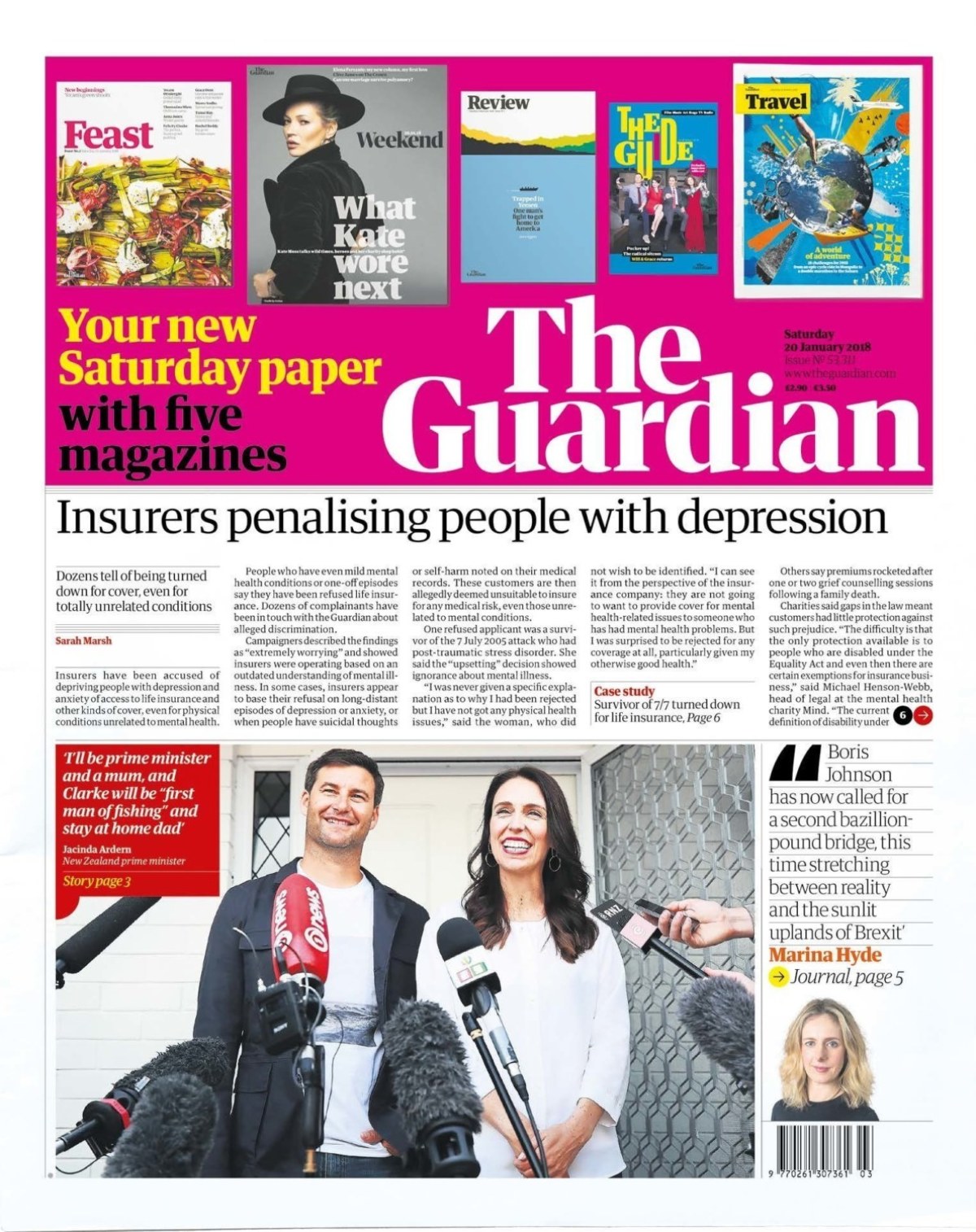


——-
Majority of Brits now regret Brexit, new poll finds – after public anger at cost of living and inflation
An increasingly large majority of Brits now think Brexit was a mistake, new polling suggests.
After years of wrangling an exit deal with the EU and the ongoing Northern Ireland Protocol dispute, 57% of the country now believes leaving the bloc was an error.
A total of 43% think it was a good decision, numbers announced by Sir John Curtice, president of the British Polling Council, reveal.
Sir John said Brexit is “probably today at its lowest level of popularity since June 2016”, when 52% of Brits backed leave.
He said: “Despite the fact the opposition parties – leaving aside the SNP – don’t want to talk about Brexit, within the public the debate is still there
“At the moment, it looks as though the 2016 referendum is going to be as unsuccessful as the 1975 one was in proving to be a permanent settlement of this debate.
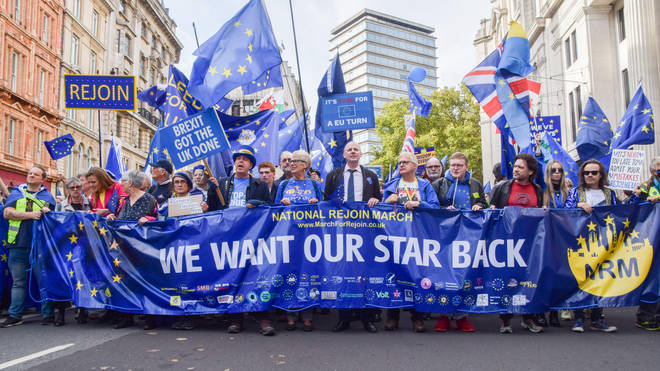
“We are as a country divided down the middle on this subject and it looks as though we are going to continue to be so for the foreseeable future.”
Growing support for the EU was apparent when the lorry driver shortage caused chaos last year and the Government had to take measures to bolster the number of HGV operators.
LBC | Leading Britain’s Conversation | Live News & Opinion

